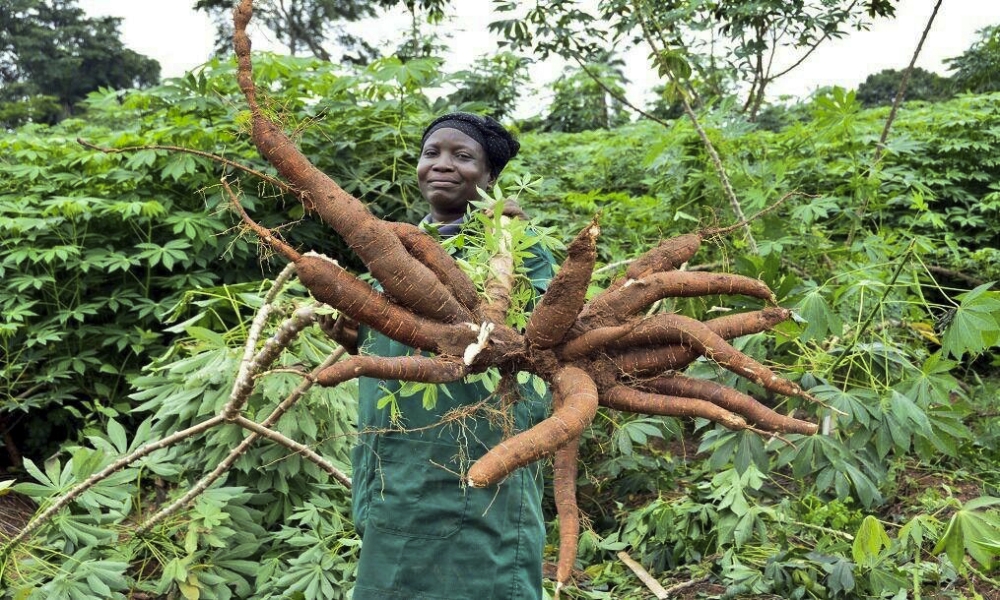The Rwanda Environment Management Authority (REMA) has granted approval for the testing of biotech, or genetically enhanced, crops on farmers’ fields, marking a significant milestone in the country’s agricultural biotechnology journey.
Previously, such crops were restricted to confined trial sites, but REMA’s latest “environmental release approval” allows pilot testing in open-field conditions.
ALSO READ: Rwanda finally passes law on GMOs: What next?
The decision follows rigorous scientific and biosafety assessments conducted under national and international standards, according to the Rwanda Agriculture and Animal Resources Development Board (RAB).
Biotech crops are plants whose DNA has been modified to improve key traits such as pest and disease resistance, drought tolerance, and nutritional quality. The initial phase will involve biotech maize, cassava, and potato trials during the current farming season.
“This decision followed extensive evaluations to ensure the crops meet environmental and safety standards,” RAB said.
ALSO READ: How agricultural biotechnology could boost food security
Oversight and regulation
Appearing before Parliament’s Standing Committee on Agriculture, Livestock and Environment on October 21, REMA Director General Juliet Kabera said her institution is closely monitoring the introduction of genetically modified (GM) crops.
“A law was enacted and a committee comprising 12 members from various institutions has been established to oversee farming and commercialisation of such crops,” she told lawmakers.
The National Biosafety Committee provides technical expertise in reviewing applications related to genetically modified organisms (GMOs). It includes representatives from ministries and agencies responsible for the environment, agriculture, food safety, plant health, standards, healthcare, customs, academia, and the private sector.
ALSO READ: Genetically modified potatoes could address honey crisis – scientists
Kabera said the regulatory framework ensures biodiversity protection and public safety, adding that committee members have received training to strengthen oversight.
She also revealed that a national laboratory for testing genetically modified crops is being established to support the biosafety system.
Building awareness and capacity
MP Speciose Ayinkamiye, Vice Chairperson of the parliamentary committee, called for greater public awareness about the new regulatory system and stronger capacity-building initiatives to ensure effective implementation of the biosafety law.
Meanwhile, RAB and the African Agricultural Technology Foundation (AATF) last week held the First Annual Review and Planning Meeting of the Rwanda Agri-Biotech Programme to assess progress and plan for the next phase.
ALSO READ: Inside Rwanda’s new Rwf13bn agri-biotech programme
Advancing Rwanda’s agri-biotech programme
Solange Uwituze, Acting Director General of RAB, said the five-year programme — launched in October 2024 aims to secure regulatory approval, variety release, and commercialisation of improved cassava, potato, and maize varieties by 2029.
“Achieving this milestone would mark a major step toward developing resilient and climate-smart agriculture in Rwanda,” she said.
The Rwanda Agri-Biotech Programme, valued at Rwf13 billion, seeks to enhance productivity and resilience in key staple crops central to national food security and the livelihoods of farming households.
It focuses on developing high-yielding, pest- and disease-resistant varieties capable of withstanding major challenges such as cassava brown streak disease, potato late blight, and insect pests like stem borers and fall armyworm.
Currently, late blight-resistant potato varieties are undergoing confined field trials in Musanze to generate data for environmental release. Additional potato trials are planned at RAB Nyamagabe and RAB Rwerere, while cassava trials are under way in Rubona and Bugesera. Two maize confined field trial sites are also being developed at RAB Nyagatare and RAB Rubona.
ALSO READ: Cassava farmers wary as viral disease ravages crops
International collaboration
Funded by the Bill & Melinda Gates Foundation and Gates Philanthropic Partners, the programme brings together national and international partners coordinated by AATF and RAB.
Key collaborators include the International Potato Center (CIP), Michigan State University (MSU), Bayer, the International Maize and Wheat Improvement Centre (CIMMYT), and the Donald Danforth Plant Science Center (DDPSC) in the U.S.
Each partner contributes specialised expertise in modern biotechnology research and crop improvement.
During the review meeting, stakeholders highlighted achievements from the first year, including regulatory progress, confined field trials, and capacity development. They also outlined priorities for the next phase — focusing on national performance trials, seed system development, and broader stakeholder engagement.
The next phase will also strengthen collaboration with regulators to ensure biosafety, transparency, and public confidence in the adoption of biotech crops.






